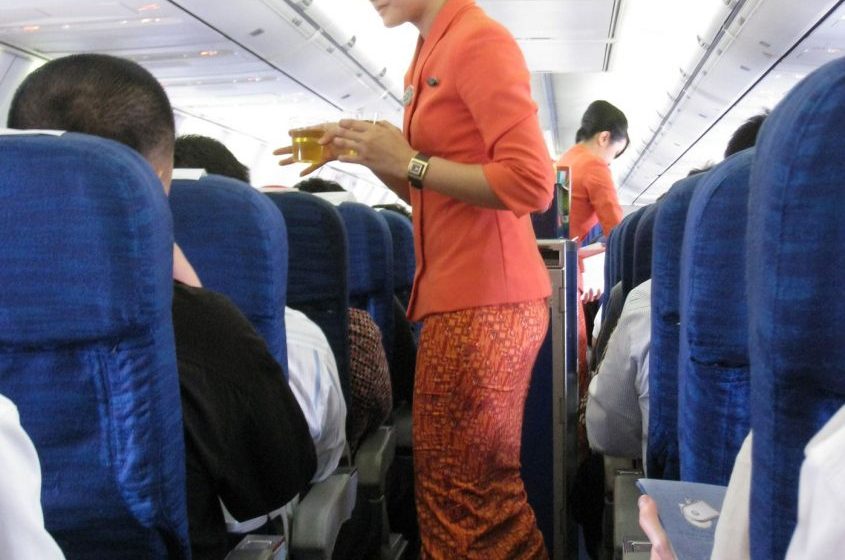Why In-flight Food Tastes Bad?

In-flight food is so commonly tasteless that the fact that some airlines don’t offer food anymore can be viewed as a humanitarian gesture. Have you ever wondered why in-flight food tastes bad or mediocre? Why, on the other hand, you enjoy tomato juice or soup better while flying? There are plenty of factors into play which affects the taste of food and taste buds while in air.
First of all, high altitude and the air pressure maintained in cabin can decrease a person’s sense of taste by about thirty percent. Also, airlines have to maintain low humidity levels to prevent the corrosion of the plane. Due to low humidity levels, a person’s nose can dry out which leads to decrease the person’s sense of taste. The ultra-dry atmosphere of cabin also affects the sense of smell. Recent studies have also revealed that background noise can also affect a person’s sense of taste.
Another contributing factor is that those food products are prepped, dried and frozen and are reheated later on so it can significantly decrease the taste of food. And sometimes, the budgetary concerns of airlines also results into mediocre food.
But some foods really taste good on plane. For example tomato juice or soup has less acid in them because of high altitude so it tastes better than on land. Passengers consume 1.6 million litters of it per year. Food with higher amount of spices and cream, for example chicken tikka masala, also tastes good because they are able to appeal the taste-buds.
This is the permanent problem for astronauts who suffer from facial fluid retention and stuffy noses because of high altitude.
So, until the airlines fix this problems and their menu, wear a set of earplugs and enjoy!







